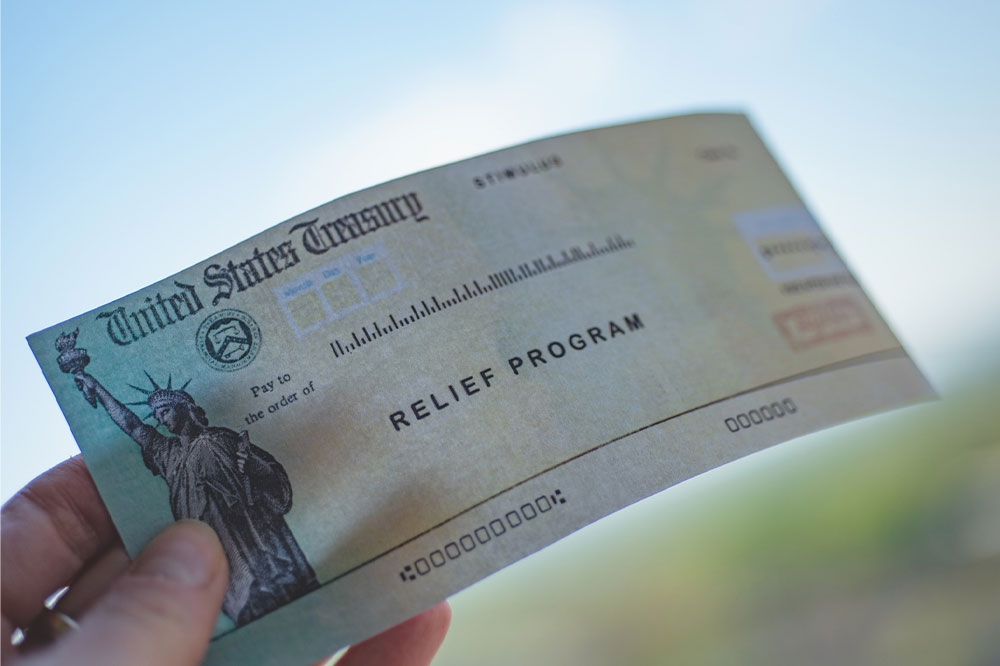Economic Stimulus Payments and Their Effects
Once in a while, reports crop up online, claiming that the economy is “crumbling” or “collapsing.” As if that’s not scary enough, too many economic and financial terms are thrown in to confuse the common citizen. One such term is economic impact payments, also referred to as stimulus checks or recovery rebates. As someone who contributes to the nation’s economy, you must know what economic impact payments mean and how it affects you.

Economic Stimulus Payments
A stimulus payment is sent to citizens by the government via direct deposit or paper check. The idea behind issuing these checks is to stimulate the economy by boosting consumer confidence and sustaining spending power, which often declines during a crisis. Recipients can use this money to pay rent, clear their mortgages, cover everyday expenses, save and invest toward their goals, or however else they like. By giving people money to spend, the government intends to drive revenues at retailers and manufacturers. Such checks are part of larger stimulus packages initiated by the federal government to support the nation’s economy.
Functionality of Stimulus Checks
For every stimulus payment, Congress passes legislation that determines who will receive the payment. Some stimulus checks are sent to every taxpayer in the country, while others are sent only to those with certain income limits. In some instances, these checks are sent only to citizens who meet specific criteria, such as being a government employee. After passing the legislation and specifying the criteria, the Internal Revenue Service starts working on sending paper checks or direct bank deposits to recipients. A point worth noting is that stimulus check money from the Treasury Department’s reserves is usually not treated as taxable income. The amount in stimulus checks varies depending on the taxpayer’s filing status. For instance, a joint taxpayer (married taxpayers) gets two times the amount in stimulus checks than those filing as individuals.
Eligibility for Receiving Stimulus Checks
There are no fixed eligibility criteria for a stimulus check or economic impact payment. The government can change criteria on the basis of the severity of economic crises and their impact at an individual level. One has to generally be a tax-paying citizen of the country to be eligible to receive stimulus checks from the federal government. Even those with a representative payee receiving social security benefits can receive stimulus payments. A representative payee must discuss with the stimulus beneficiary how they should use this money. Note that although an economic stimulus payment belongs to the Social Security or Supplemental Security Income (SSI) beneficiary, it’s not a Social Security or SSI benefit.
Recent Stimulus Checks
Let’s look at some stimulus checks the government sent in the past 15 years to understand how stimulus payments work:
February 2008
To combat the 2008 financial crisis, the government issued stimulus checks totaling about $120 billion. Those with at least $3,000 in qualifying income from, or in combination with, Social Security benefits, Veterans Affairs benefits, Railroad Retirement benefits, and earned income were eligible to receive the check. Individual taxpayers got up to $600, and married taxpayers filing joint returns received up to $1,200. Families with dependent children received an additional $300 per child.
March 2020
To tackle lockdowns due to the covid-19 pandemic, the government approved a bill to send stimulus payments to citizens under the CARES Act in March 2020. The Act specified tax rebates of up to $1400 per adult (double for joint filers) and an additional $500 per qualifying child if earnings were up to $75,000 ($150,000 for joint filers.) Those with higher incomes were also eligible but were offered smaller rebates.
December 2020
The second round of stimulus checks under the CARES Act was approved in December 2020. It included $600 in paper checks or direct deposits for individuals (or $1,200 for joint filers) and an extra $600 for every dependent child.
March 2021
In March 2021, the federal government signed the American Rescue Plan Act (ARPA) to further help American cope with the financial burden caused by the pandemic. The ARPA was a $1.9 trillion stimulus package that included $1,400 checks for individuals and their dependents for those earning less than $75,000 per year (or $150,000 for joint filers.) Individuals earning more than $80,000 or joint taxpayers making more than $160,000 were not eligible to receive stimulus payments.
Economic Impact Payments in 2022
With the pandemic slowly fading out, its impact on the nation’s economy seems to be reducing. However, another threat to the economy that’s already here is inflation, which has been at record levels in the past 40 years. Many legislators are calling for more stimulus payments, but there’s hardly any immediate relief from the federal government. In response to rising prices, many state governments have decided to take matters into their own hands. Fourteen states in the country will send or have already sent stimulus payments to taxpayers in the coming months. If your state is one of them, you may inquire for details of the 2022 stimulus package from your state government.




